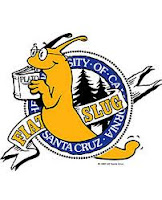- an uproar over a university LGBT Resources Guide,
- Elmhurst College becomes the first to ask applicants their sexual orientation and gender identity,
- two more law schools accepting military recruiters in the wake of the repeal of Don't Ask, Don't Tell law,
- and a study by the Center for American Progress highlighting the unequal treatment of LGBTQ students and children of same-sex parents by federal financial aid,
Oh, and I was working with the Chronicle of Higher Education staff to move my blog to Wordpress so I could be part of the Chronicle Blog network (CBN). As a longtime reader of the paper and online versions of the Chronicle, I am so pleased to be one of the associated collection of blogs. My good friend Tenured Radical is also part of the new crew; it is nice not to go into this alone! She promised that the CBN would be a good new home, and she isn't wrong about that. The move happened pretty quickly, with an improved colorful logo in the header and a new byline. So be sure to change your RSS feed to the new site!
Anyway, back to the actual blog. My quick thoughts on the above LGBTQ academic issues are as follows...
- The LGBTQ resource guide was a tempest in a teapot, a non-issue brought to life by a conservative faculty blogger and given life support by the FOX and Christian news empires. Providing a list of resources, including listing churches that claim to be welcoming to queer folks, is hardly a breach of church and state. Even the conservative blogger had to admit it was not a violation. The issue died quickly and quite appropriately.
- Hurray for Elmhurst including information about sexual orientation and gender expression on its admissions form. Having these data allows the school to track these students' academic performance, retention, and graduation rates, along with any number of other important indicators. I am hoping other schools will make the shift and, eventually, the common application will follow suit.
- Bringing back military recruiters is the right thing to do. The military is a major employer, and students need access to employers in this day and age. That said, kudos for these schools for doing the right thing and standing up to the federal government when the policy was discriminatory.
- The CAP Financial Aid study shows the good, bad, and ugly of financial aid in the age of the Defense of Marriage Act (DOMA). Since the federal government doesn't count our same-sex partners' income in figuring need, we may benefit and get more aid than our heterosexually married peers. Of course, that assumes that our same-sex partner makes money and that they, or their children, don't have major medical or living costs for which we contribute. In that case, we may get less aid than we should. This discounting of half of the couple/family also impacts children of same-sex couples, whose aid is not determined in a rational way that includes the whole family. This is true, even when both same-sex parents are LEGALLY recognized as parents and/or even if the parents/partners are LEGALLY married. Worse yet, even if one parent is the biological parent with sole legal custody, if her partner pays more than 50% of the children's expenses, the biological parent cannot claim the children in household size. The same would not be true in a heterosexual, married, stepparent relationship. Bottom line from the report: We need to get rid of DOMA now, enact the Every Child Deserves a Family Act (which would bar discrimination against same-sex couples in adoption), and get the Department of Education to recognize same-sex families. It would also be nice to make the FAFSA forms gender neutral as regards parents and spouses.
This is Lesboprof, signing out from my new geographic locale and my new blog space on the Chronicle Blog Network.



































